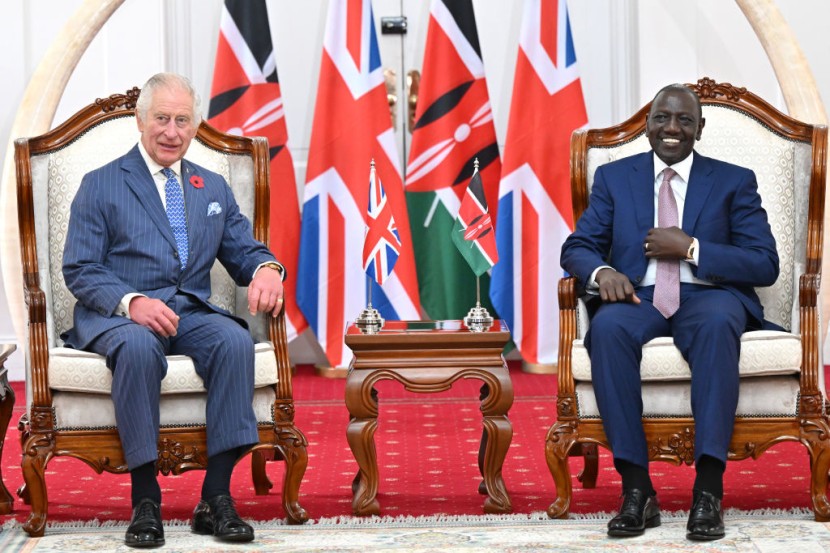King Charles III made his first public remarks as monarch on colonial atrocities during his first visit after coronation to a Commonwealth country, Kenya.
The Royal said that there were "no excuses" for the "abhorrent and unjustifiable acts of violence committed against Kenyans" during their struggle for independence from Britain. However, King Charles III did not offer the full apology that many people in the East African country have been calling for.
King Charles Addresses Colonial Abuse of Kenya

He spoke during a state banquet that was held on Tuesday where he stuck closely to the British government line. King Charles III said that he felt "the greatest sorrow" and the "deepest regret" for the wrongdoings of the past. However, he steered clear of any language that would open a broader conversation about reparations.
The situation comes as Kenya is marking the 60th anniversary of its independence and it was considered to be a relatively safe choice for Charles and Queen Camilla's first Commonwealth trip. The nation has a warmer relationship with the United Kingdom compared to some other former colonies, as per the Washington Post.
Britain is currently in a period of reckoning similar to other former colonial powers and King Charles III has been facing mounting pressure to address the legacy of decades of British rule in East Africa.
A professor of diplomacy at SOAS University of London, Nick Westcott, said that the relationship between Britain and Kenya at the official level is "very good." However, the former director of the Royal African Society said that this did not mean that there are no difficult issues that go back to the colonial period.
Many have been calling for Charles to acknowledge, in particular, the violent suppression that was carried out by British authorities in Kenya during the early reign of his mother, Queen Elizabeth II. British officials responded to what was known as the Mau Mau revolt in the 1950s with a brutal crackdown on the broader population.
During that time, British forces killed thousands of people and Charles was urged to make a full and unambiguous apology to the people of the East African nation. This came after it was revealed that Kenya would be the first Commonwealth country that the Royal would visit as king, according to The Daily Beast.
Calls for Reparations
Kenyan President William Ruto praised King Charles III for his willingness to "shed light on uncomfortable truths" that reside in the darker corners of the two nations' shared experience. While many citizens of the East African country welcomed the king's visit, others have conducted protests and shared dissenting voices.
The Kenya Human Rights Commission (KHRC) urged the Royal to make an "unequivocal public apology" and pay reparations for abuses that were committed by colonial authorities. On top of that, Ruto said that much remains to be done in order to achieve full reparations.
The KHRC claimed that 90,000 Kenyans lost their lives from execution, torture, or maiming during the British administration's counter-insurgency. During that time, British officials forced more than a million Kenyans suspected of being part of the Mau Mau anti-colonial uprising into concentration camps, said The Guardian.
© 2025 HNGN, All rights reserved. Do not reproduce without permission.








